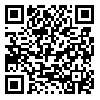Volume 10, Issue 3 (Summer 2024)
JCCNC 2024, 10(3): 211-222 |
Back to browse issues page
Dare Azeez Fagbenro * 

 1, Mathew Olugbenga Olasupo2
1, Mathew Olugbenga Olasupo2 

 , Erhabor Sunday Idemudia3
, Erhabor Sunday Idemudia3 

 , Sikirulai Alausa Sulaiman4
, Sikirulai Alausa Sulaiman4 




 1, Mathew Olugbenga Olasupo2
1, Mathew Olugbenga Olasupo2 

 , Erhabor Sunday Idemudia3
, Erhabor Sunday Idemudia3 

 , Sikirulai Alausa Sulaiman4
, Sikirulai Alausa Sulaiman4 


1- Department of Psychology, Faculty of Social Sciences, University of Ilorin, Ilorin, Nigeria. , fagbenro.da@unilorin.edu.ng
2- Department of Psychology, Faculty of Social Sciences,Obafemi Awolowo University, Ile-Ife, Nigeria.
3- Social Science Cluster Faculty of Humanities, North-west University, Potchefstroom, South Africa.
4- Department of Psychology, Faculty of Social Sciences, Federal University of Oye, Oye-Ekiti, Nigeria.
2- Department of Psychology, Faculty of Social Sciences,Obafemi Awolowo University, Ile-Ife, Nigeria.
3- Social Science Cluster Faculty of Humanities, North-west University, Potchefstroom, South Africa.
4- Department of Psychology, Faculty of Social Sciences, Federal University of Oye, Oye-Ekiti, Nigeria.
Abstract: (405 Views)
Background: Previous studies have been done on antecedents of workplace bullying, but the connections between personality traits, self-efficacy and workplace bullying are still given less attention in the present workplace bullying literature. Therefore, this study examines the predictive role of personality traits on workplace bullying and investigates the mediating effect of self-efficacy in the relationships between personality traits and workplace bullying among a sample of Nigerian nurses.
Methods: A descriptive, cross-sectional study was conducted on 371 nurses aged 20 to 58 (Mean±SD age, 39.12±8.31 year, women=305). They were selected through a purposive sampling in Ibadan, Nigeria, in 2022. The subjects responded to the negative acts questionnaire-revised, big five inventory and generalized self-efficacy scale. The obtained data were analyzed using the Pearson product-moment correlation and structural equation modeling (SEM) in SPSS software, version 23. The hypotheses were tested at a 0.05 level of significance.
Results: Among the personality traits, extraversion (β=-0.313, P<0.001), agreeableness (β=0.371, P<0.001), conscientiousness (β=0.325, P<0.001), and openness to experience (β=-0.154, P<0.001) predicted workplace bullying. Findings also revealed that self-efficacy (β=-0.156, P<0.05) predicted workplace bullying among nurses. Self-efficacy partially mediated the link between personality traits (agreeableness and openness to experience) and workplace bullying (β=-0.042, 95% CI, 0.016%, 0.074%, P=0.001), indicating that self-efficacy serves as a buffer to the experience of workplace bullying.
Conclusion: Self-efficacy enhancement training programs are suggested for nurses to make them proactive in workplace-related bullying.
Methods: A descriptive, cross-sectional study was conducted on 371 nurses aged 20 to 58 (Mean±SD age, 39.12±8.31 year, women=305). They were selected through a purposive sampling in Ibadan, Nigeria, in 2022. The subjects responded to the negative acts questionnaire-revised, big five inventory and generalized self-efficacy scale. The obtained data were analyzed using the Pearson product-moment correlation and structural equation modeling (SEM) in SPSS software, version 23. The hypotheses were tested at a 0.05 level of significance.
Results: Among the personality traits, extraversion (β=-0.313, P<0.001), agreeableness (β=0.371, P<0.001), conscientiousness (β=0.325, P<0.001), and openness to experience (β=-0.154, P<0.001) predicted workplace bullying. Findings also revealed that self-efficacy (β=-0.156, P<0.05) predicted workplace bullying among nurses. Self-efficacy partially mediated the link between personality traits (agreeableness and openness to experience) and workplace bullying (β=-0.042, 95% CI, 0.016%, 0.074%, P=0.001), indicating that self-efficacy serves as a buffer to the experience of workplace bullying.
Conclusion: Self-efficacy enhancement training programs are suggested for nurses to make them proactive in workplace-related bullying.
Type of Study: Research |
Subject:
General
Received: 2023/11/22 | Accepted: 2024/03/6 | Published: 2024/08/1
Received: 2023/11/22 | Accepted: 2024/03/6 | Published: 2024/08/1
| Rights and permissions | |
 |
This work is licensed under a Creative Commons Attribution-NonCommercial 4.0 International License. |


